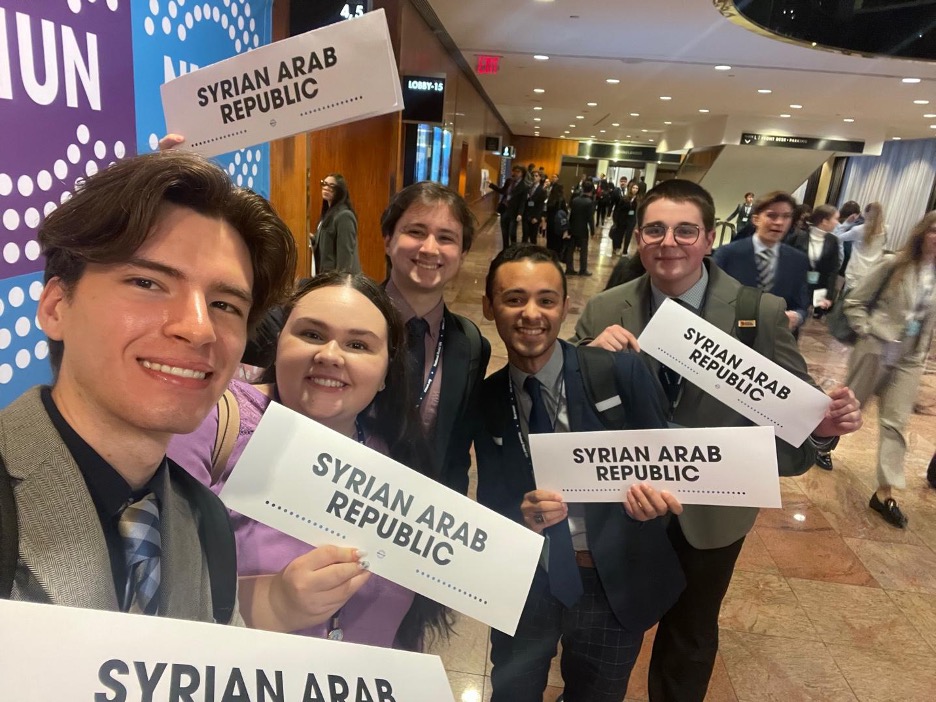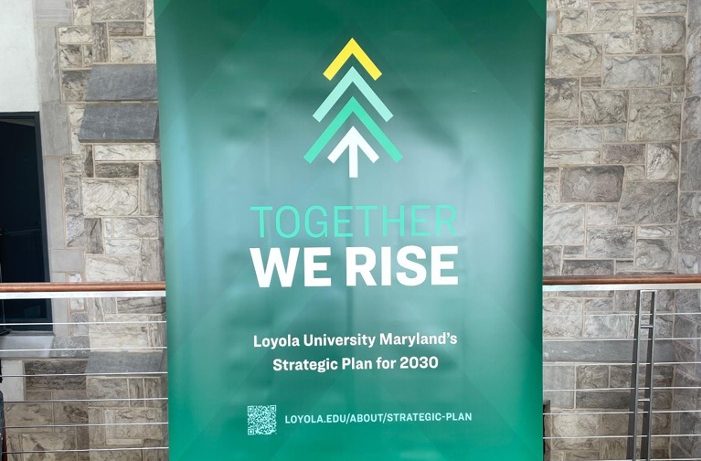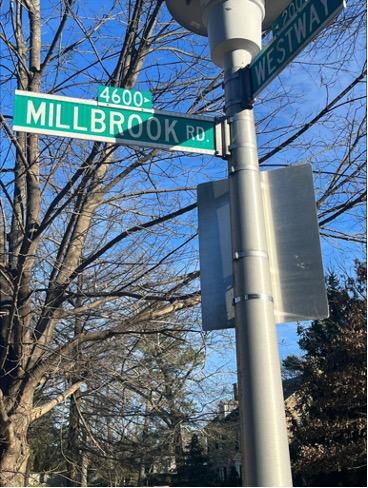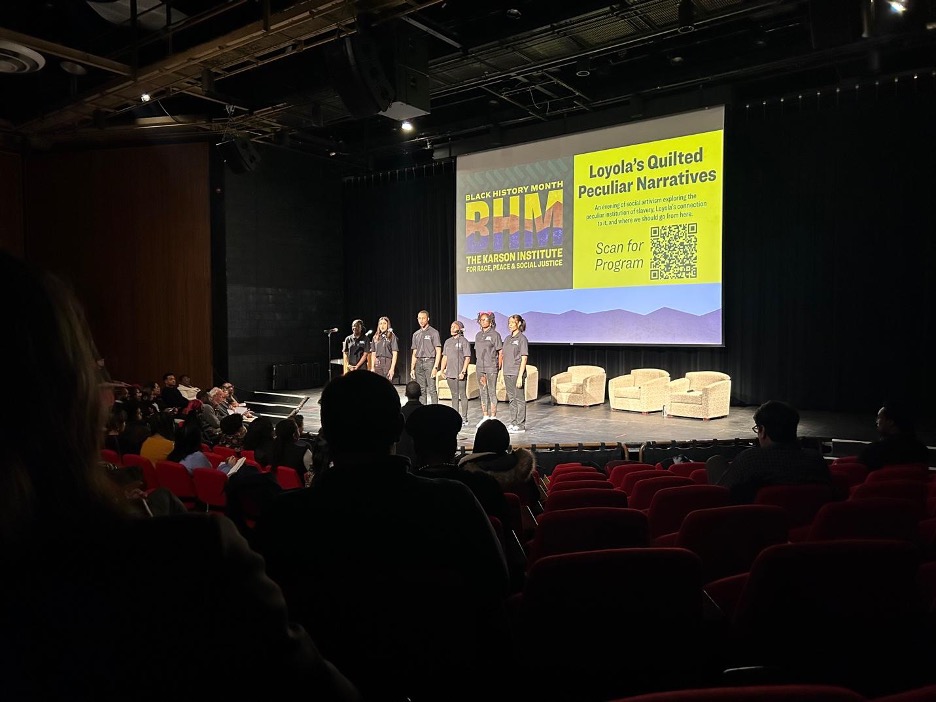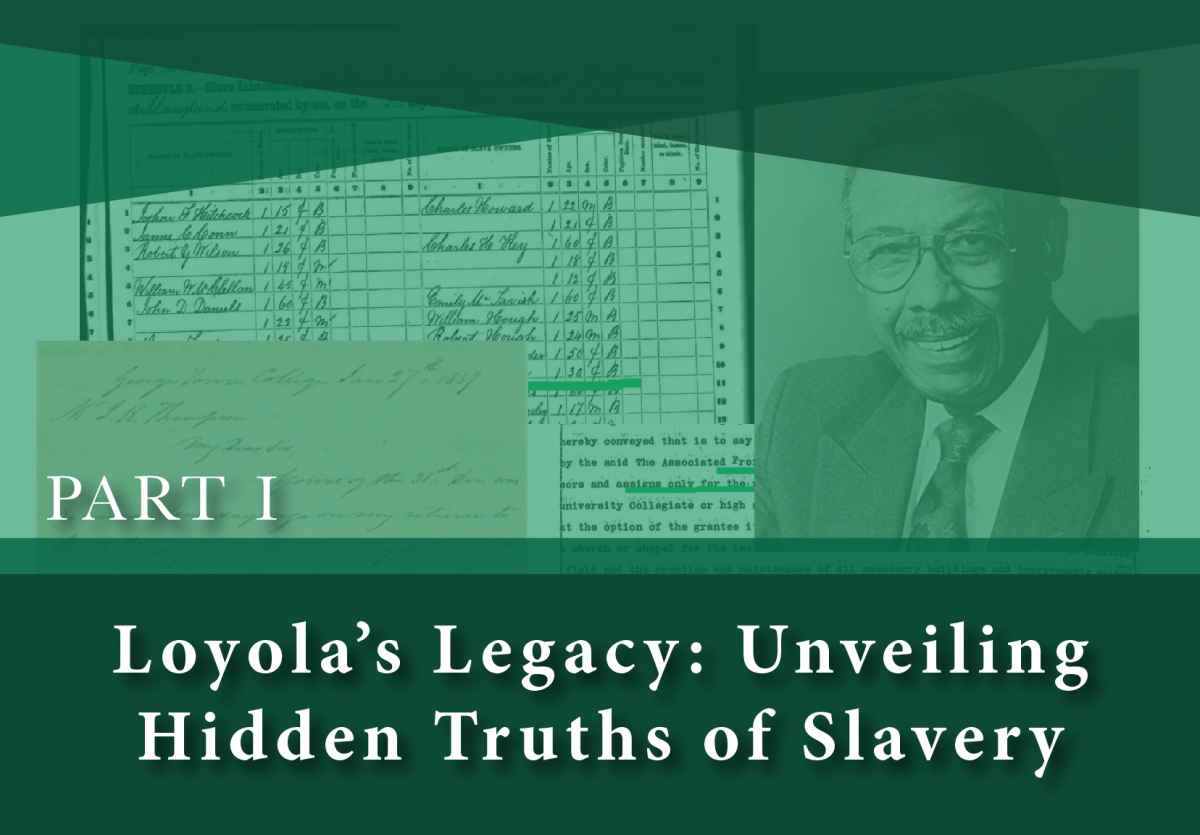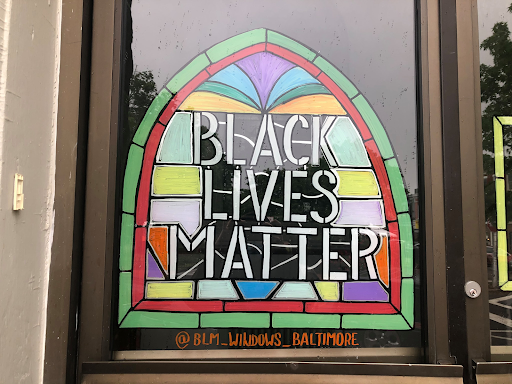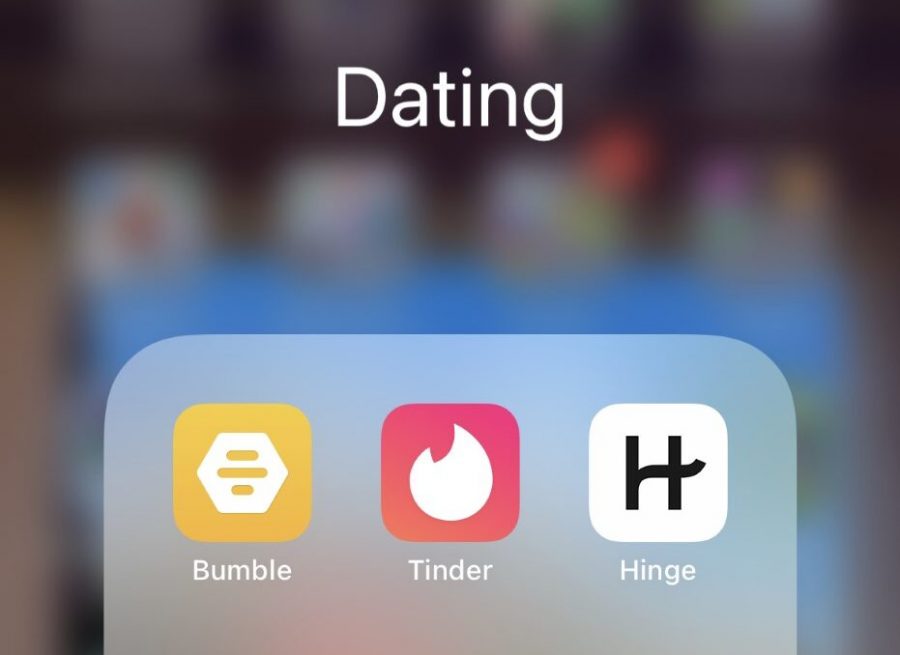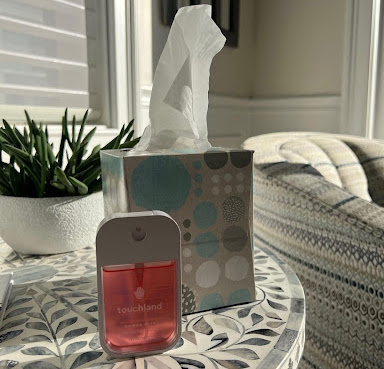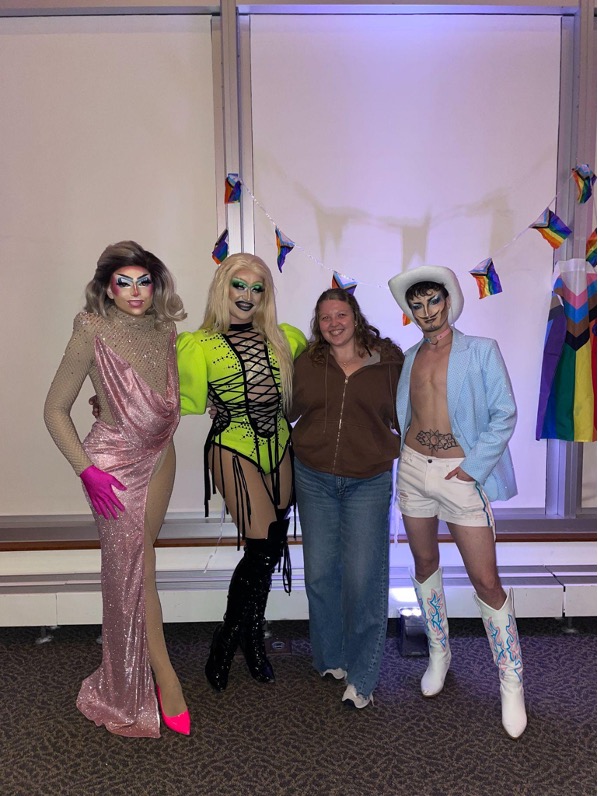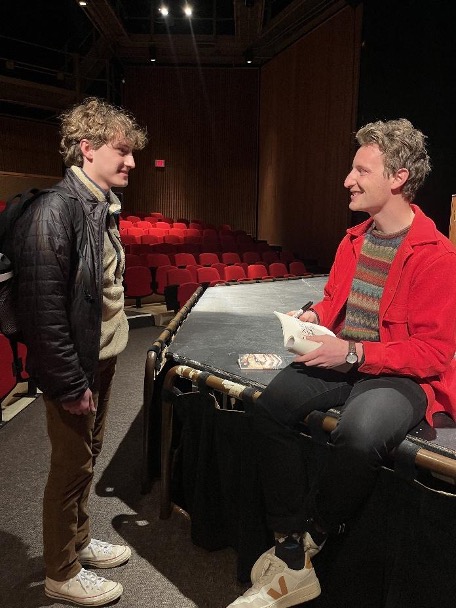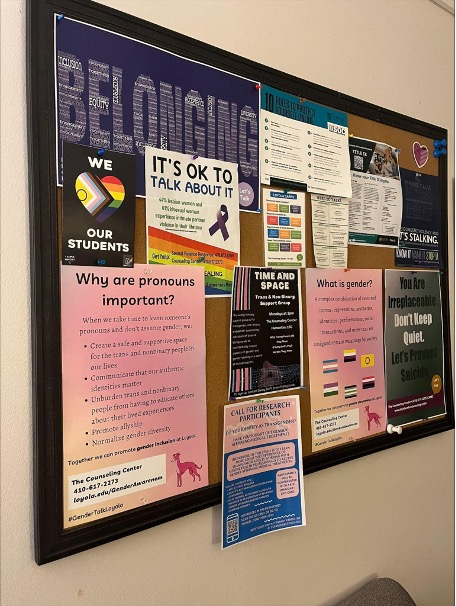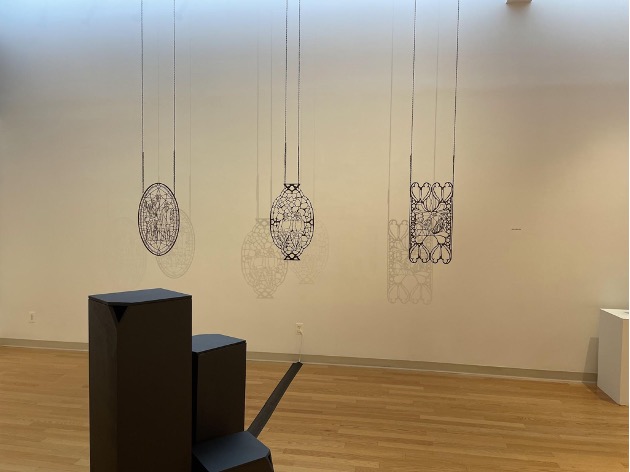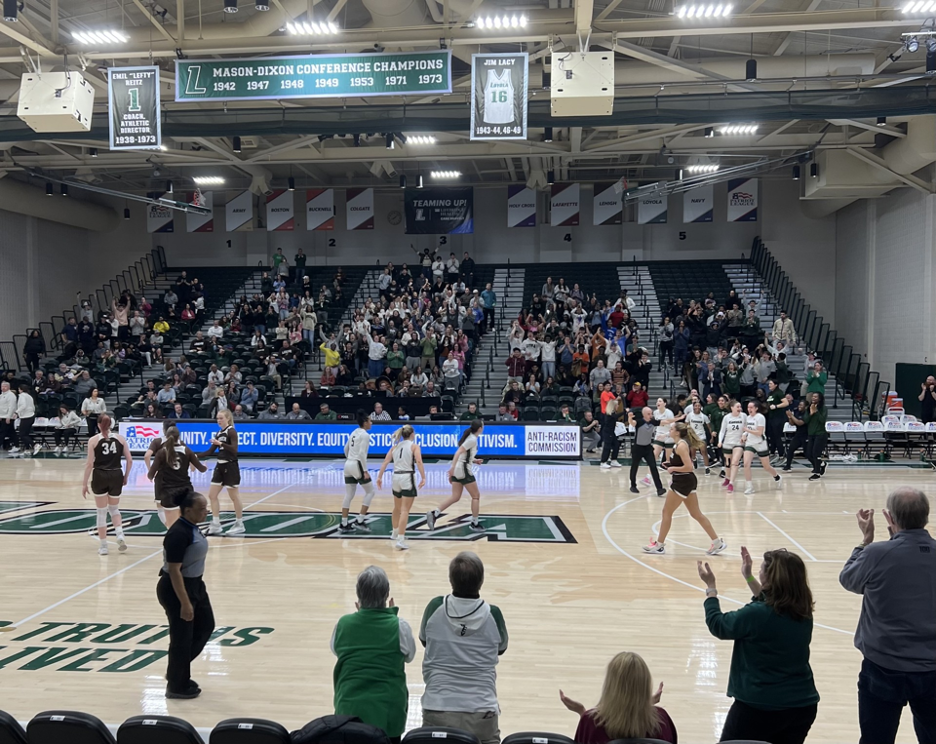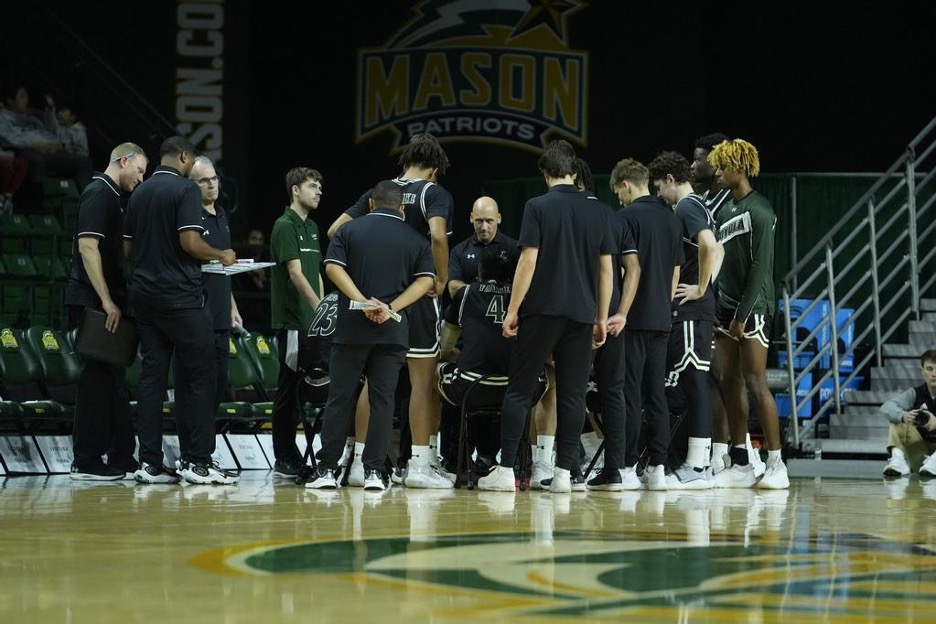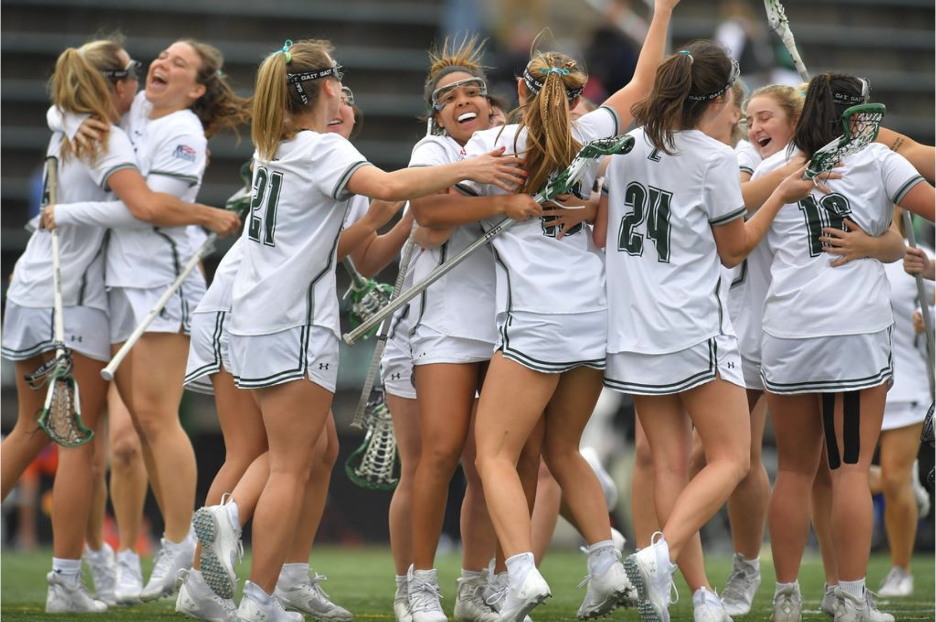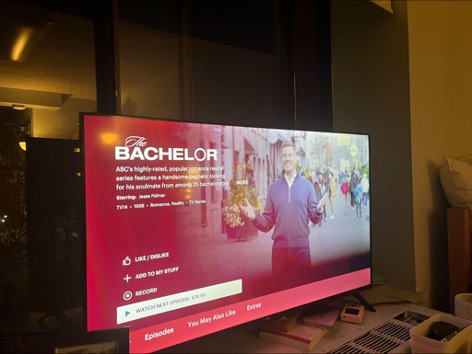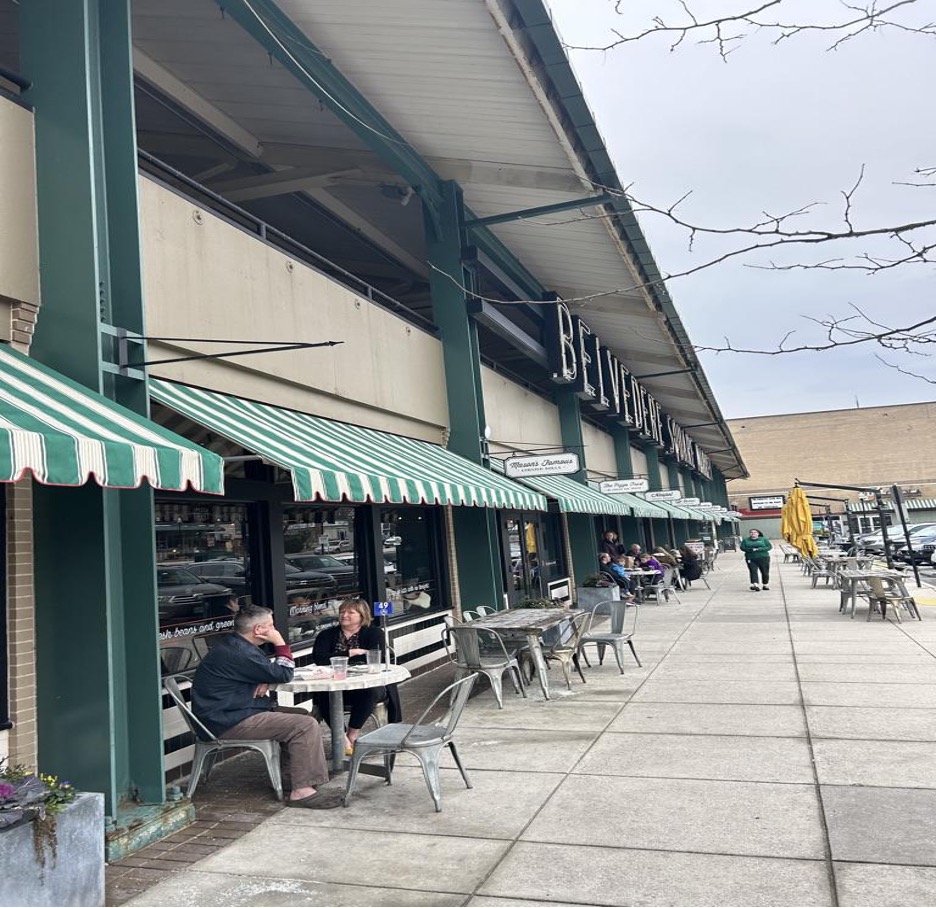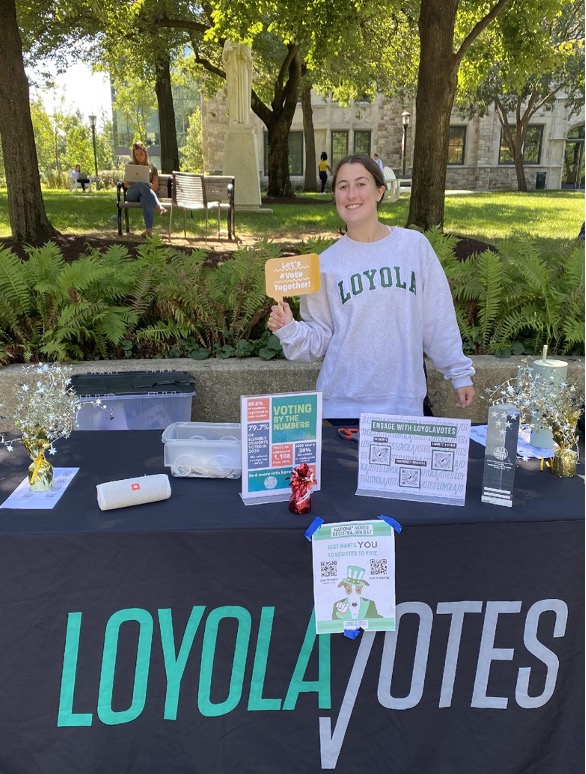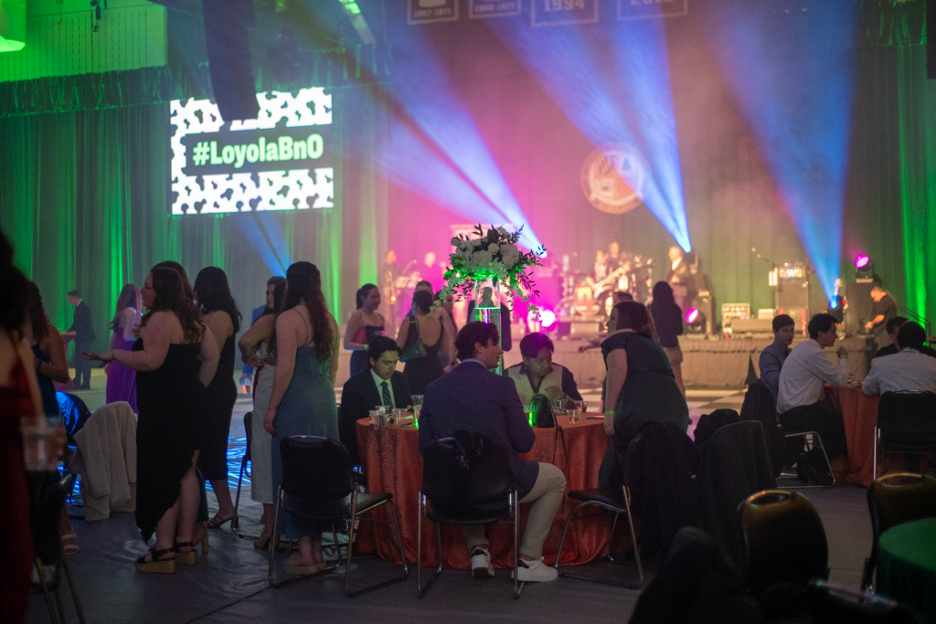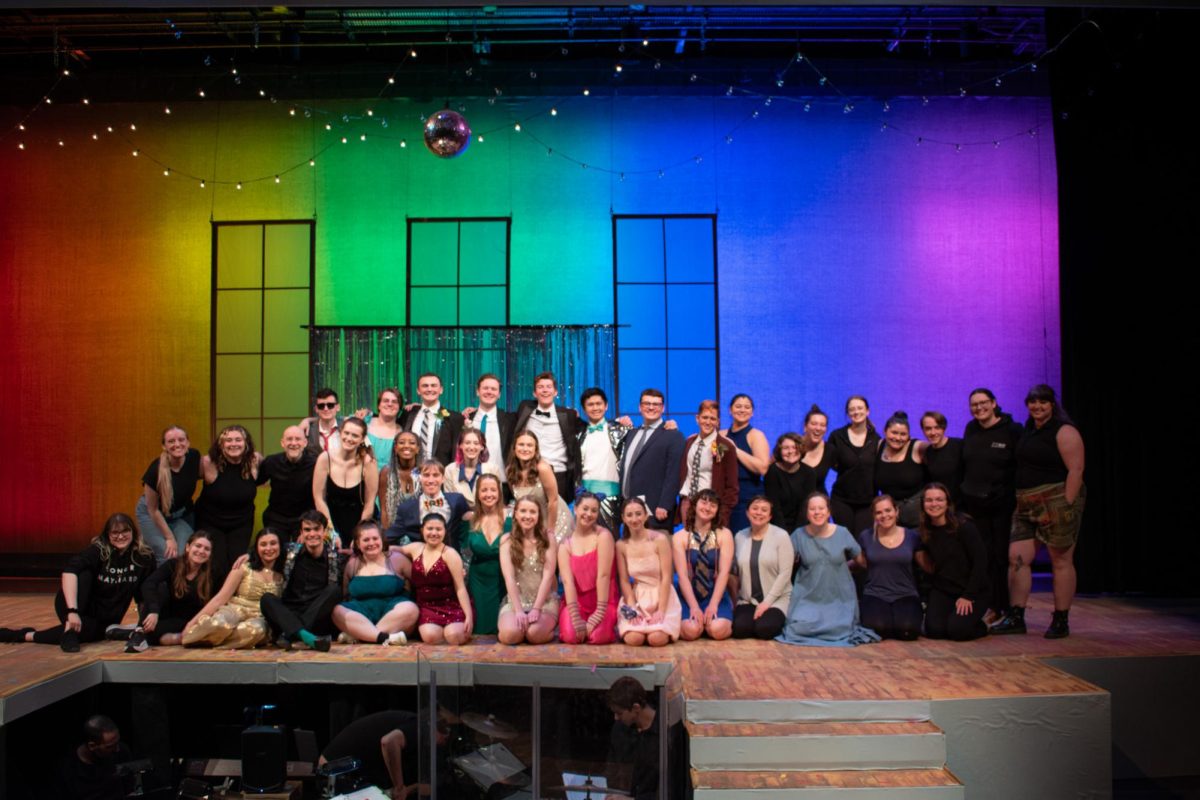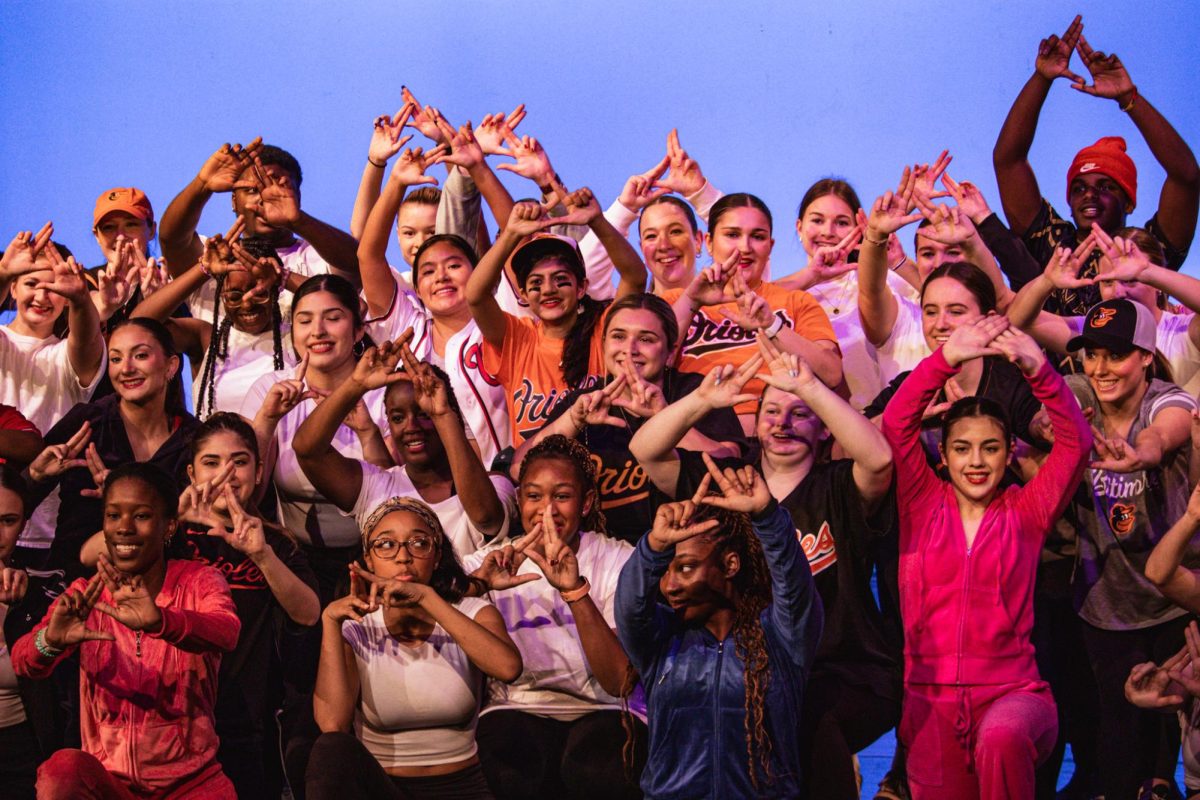It’s easy to look at higher education as a transaction: You pay money to get a diploma. You then use that degree to get a job. For most, it’s an easy two-step process of give and take—a necessary step to unlock a greater unknown. But for some, the importance of giving outweighs that of taking to the point of generous overflow.
Located on the bottom floor of Campion Towers, the Office of Student Advancement’s Phonathon is a hub of enthusiastic students dedicated to the university’s mission of philanthropy. Every night for four hours, its staff callers reach out to parents of current students, parents of past students, and alumni both new and old to see if they’d be interested in furthering their greyhound involvement by giving back to Loyola’s various efforts in the form of monetary donation.
Phonathon shifts are mostly what you would expect from a call center: rows of cubicles with staff making calls, headsets on, motivation high. The energy that buzzes through the air is occasionally recharged by an exuberant, “I got a credit card!” or perhaps even more exciting, “I got a pledge!” which signifies a more long-term commitment.
“At Phonathon, getting a pledge is such a gratifying experience. As a caller, knowing that you made a connection with a prospect and helped them understand how important philanthropy is to Loyola is so rewarding,” Manager Delani Pecchioli ‘19 explained.
These feats, however plentiful on any given night, surely do not go unnoticed. With every new accomplishment, the caller is given the opportunity to play the game of the night that is managed by the Shift Leader—whether it be Phamily Pheud, Jeopardy, or Battleship—adding a healthy dose of competition to the workplace fun.
Encouragement from coworkers and those in higher positions plays a huge factor in keeping spirits high and building a sense of community at Phonathon.
For their first few calls, new callers are paired up with a more seasoned caller to listen in on their conversations to offer feedback and answer any questions they may have. This mentoring system ensures that everyone is comfortable when they first start out and can not only have the most fruitful conversations, but can advocate for Loyola in the best way possible.
 Callers are always in the running for the titles “Top Caller” and “Caller of the Night,” honoring people’s hard work and the time they take out of their busy schedules to do their job, and do it well.
Callers are always in the running for the titles “Top Caller” and “Caller of the Night,” honoring people’s hard work and the time they take out of their busy schedules to do their job, and do it well.
But what sometimes gets overlooked amidst the often indecipherable hum of lively chatter is the unexpected connections that are made during these calls that inevitably knit the larger Loyola community that much closer together, defying barriers of geographical place, time, and even differences in identity.
“A lot of the time people think that working at Phonathon you just get yelled at all the time because you’re asking people for money,” Assistant Manager Jamie Archibong ‘19 explained with a chuckle, “but most of the time the people who pick up are so happy to talk about their experiences, they love Loyola, [and] you get to see your possibilities as a current student.”
Working at Phonathon also comes with its unique pressures: In addition to getting donations for the Evergreen Fund, donors also have the opportunity to give to specific groups and organizations on campus to whom they feel personal ties. Of course, this results in an imbalance of funds between groups, a predicament that can sometimes cost their existence.
“You care that a department might not have enough money to do something. You care when a new minor comes to life because of a donation. You really become so aware of how much alumni donation impacts the school,” Archibong said.
As Archibong points out, the Boulder second floor expansion, the building that temporarily houses the bookstore and mail stop, and the new and improved Center for Intercultural Engagement (CIE) are projects that were made possible by generous gifts and donations.
“Many students on campus don’t know the ways in which they are impacted by philanthropy and the generosity of others, so I try to let others know just how important the work we are doing actually is,” Pecchioli said.
The money that is not specified towards specific organizations and projects is put directly towards the Evergreen Annual Fund, whose resources are allocated directly towards academic scholarships and need-based grants.
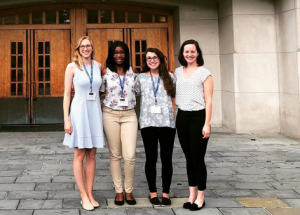 “That’s where I feel like we need the most funding because that’s the best way of getting the most students of various backgrounds,” Joy Kelson ‘19 shared. “Finances shouldn’t be what prevents someone from going to school.”
“That’s where I feel like we need the most funding because that’s the best way of getting the most students of various backgrounds,” Joy Kelson ‘19 shared. “Finances shouldn’t be what prevents someone from going to school.”
Through Phonathon, what it means to be a greyhound expands from a one-time personal transaction to a genuine, lifelong investment in furthering others’ opportunities, both during their time at Loyola and beyond.
Even though its primary goal lies in its financial gain, working for Phonathon gives students the opportunity to form a sense of community with those whose ties to Loyola have been tethered by time and inevitable separation. Through the conversations callers have with both alumni and their families, it is evident that one’s time on the Evergreen campus has had long lasting and far reaching effects.
“Even if we talk to people and say right off the bat, ‘Oh, I can’t give money,’ we don’t just say, ‘Okay, bye!’ We still want to talk and genuinely hear about their experience because even that knowledge is giving back in a way, learning about different things I can do with my time here, [or even] professors I can talk to,” Kelson explained.
It’s clear that Phonathon’s impact goes far beyond their small corner of Campion Towers, and has played a role in enhancing virtually every aspect of students’ “Loyola experience,” no matter where your interests and passions lie.
“It was because of Phonathon that I felt comfortable applying to be an RA. I was like ‘Wow, I love hearing about alumni experiences, I love helping alumni on the phone […] and I realized I could be doing the same thing with current students” Archibong shared.
“Phonathon gave me the confidence to say, ‘If I can have a good conversation and make someone feel good over the phone, I can be have these face-to-face interactions with my residents have make them feel comfortable while they’re here.”
 The dedication that Phonathon callers give to their jobs and the philanthropy that their donors demonstrate prove the same thing: that the experience of being a Loyola greyhound is invaluable, one that is worth granting to as many others as possible.
The dedication that Phonathon callers give to their jobs and the philanthropy that their donors demonstrate prove the same thing: that the experience of being a Loyola greyhound is invaluable, one that is worth granting to as many others as possible.
And even if talking on the phone really isn’t for you, there are still other ways to get involved and actively engage others in the gift of giving on campus. Groups like the Student Philanthropy Council and donation opportunities like Senior Class Gift all allow student a chance to be ambassadors of giving.
To be a greyhound means to go beyond yourself: to bridge the gap between need and opportunity and to provide everyone with the chance to experience the most fulfilling higher education experience that fosters growth not only within oneself, but in community.
Photos Courtesy of Phonathon’s Instagram account.


